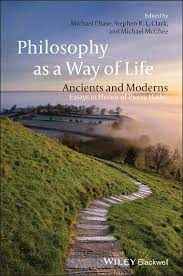
Pierre Hadot aims to highlight the significance of philosophy as a way of life for anyone seeking personal growth in his well-known work, Philosophy as a Way of Life. According to Hadot, philosophy should be viewed as a practice that one can incorporate into their daily life to promote self-fulfillment and self-understanding. As he attempts to offer a fresh perspective on philosophy and its applicability in the contemporary world, his ideas have generated a great deal of debate in the philosophical community. Hadot’s writing has drawn comparisons to other works of a similar nature, including Montaigne’s Essays and Nietzsche’s Beyond Good and Evil because he attempted to reframe and apply conventional philosophical ideas to daily life.
The ideas expressed in Pierre Hadot’s Philosophy as a Way of Life are both timeless and timely. In his work, Hadot identifies the core idea of philosophy as being directed towards self-knowledge and understanding of the world in which we live. He argues that philosophy requires daily practice to be effective and meaningful, which he calls a “spiritual exercise”. He further suggests that by engaging in such exercises, individuals can be better prepared to live more fulfilling and meaningful lives; a concept that can be applied to many aspects of contemporary living.
The classic work on philosophy by Pierre Hadot, Philosophy as a Way of Life, is frequently disregarded. It examines the viewpoints of the ancient philosophers and their efforts to conform to the dominant philosophical systems of the day. According to Hadot, these early philosophers saw philosophy as a way of life rather than just an academic pursuit. According to his theory, philosophy was used to shape one’s life by giving guidelines for how to live and contemplate abstract ideas.
Since the time of the Ancient Greeks, philosophy has been a way of life that is still used today. French philosopher Pierre Hadot offers an intriguing viewpoint on how adopting a philosophical way of life can result in significant spiritual transformation. According to him, philosophy is more than just a “theoretical attitude” or an abstract reflection on the things of this world; it is a practical and innovative attitude that influences all facets of life. His revolutionary claim that philosophy can fundamentally alter our lives requires us to look beyond philosophy’s intellectual side and discover a more fulfilling way of life.
To live a life with philosophy, one should continually strive for self-improvement. This can be accomplished by constantly reflecting on one’s actions, behaviors, and words. It is also beneficial to explore different ethical theories and understand how to apply them to everyday life. By understanding the deeper connections between one’s actions and the effects on the world around them, one can develop a greater sense of wisdom, and ultimately a better sense of one’s self.
This method of studying philosophy enables us to comprehend how it can change our lives. By approaching it as a practice, we can discover how it can influence how our lives are lived. The Stoics, Epicureans, and Skeptics of antiquity all held distinctive philosophical perspectives, but they all aspired to a similar end: to live a meaningful life by adhering to the precepts of philosophy. To find happiness, balance, and peace in their lives, they tried to use philosophy as a guide.
Such a perspective has broad ramifications. It implies that we can create a more conscious and purposeful way of living by engaging in philosophical practices and attempting to think deeply and critically about our lives. It also means that we should be aware of how our thoughts and beliefs impact how we live. We can better understand our nature and discover how to live more fully and authentically by turning our attention inward.
One of the ways that we practice living with philosophy is by cultivating certain habits and practices. This could include things such as reading philosophical works, setting aside time for reflection, or engaging in activities such as yoga or meditation. These habits and practices help us to cultivate an intelligent way of life by helping us to be mindful and present, and by facilitating deeper contemplation on the things that matter most to us. Furthermore, they enable us to better understand our own beliefs and values and to live by them.
The philosopher Michel Foucault argued that the capacity to reflect on our lives and actions, to question our assumptions and beliefs, is essential to our development as humans to demonstrate further how philosophy can result in transformation. For instance, he claimed that self-reflection is essential to addressing the existential problems that come with being a human in his essay “The Care of the Self”. This kind of reflective practice can help us better understand who we are and how we interact with the world. We can also find ways to make our lives better and live more meaningful lives.
